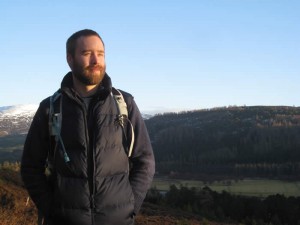Speaker: Dr. Derek Robinson
Title: Discovering the Themes of Complexity Science in Land Use Modelling
Date: Tuesday, February 24, 2015 – 2-4pm
Location: M3-2134
A video recording of the talk can be found below.
Abstract
How humans use land and change what resides on land (e.g., vegetation) can have profound environmental impacts that range from local to global scales. Many social and natural drivers of land use, land management, and land cover change activities are interwoven resulting in a complex land system. To gain an understanding of the actors, their activities, and their ecological impacts in this system requires a combined empirical and modelling approach that systematically reconstructs observed complexity science components of the system. The presented land-use research is situated in the exurban portion of the broader land system. These exurban areas are characterised by highly fragmented human-dominated landscapes comprising a mosaic of natural, agricultural, and low-density residential land uses. Agent-based modelling has proved essential to improving our understanding of the land system by enabling the representation and synthesis of heterogeneity, interaction, aggregation, and other complexity science concepts. The presented research describes agent-based modelling approaches, data collection techniques used to empirically inform agent-based models, and highlights land-use modelling results. The presentation concludes with a look at future research directions with student support available from the National Science and Engineering Research Council (NSERC) to use new equipment attained from the Canadian Foundation for Innovation (CFI) and the Ontario Research Fund (ORF).
 Presenter Bio
Presenter Bio
Derek Robinson is an Assistant Professor in the Department of Geography and Environmental Management, University of Waterloo. His research interests lie at the center of land use, land management, and the carbon cycle. He uses agent-based modelling as an approach to integrate GIS, ecological, and human decision-making models to evaluate socio-economic contexts and policy scenarios on changes to land use and land cover, ecological function and the provision of ecosystem services, and human well-being. His research projects are typically situated at the urban-rural fringe (i.e. exurban or peri-urban lands), which requires insight into the drivers of farmer decision-making, public land management, and urban, suburban, and exurban growth.
WICI Talk with Derek Robinson – Discovering the Themes of Complexity Science in Land Use Modelling from Waterloo Complexity Institute on Vimeo.

